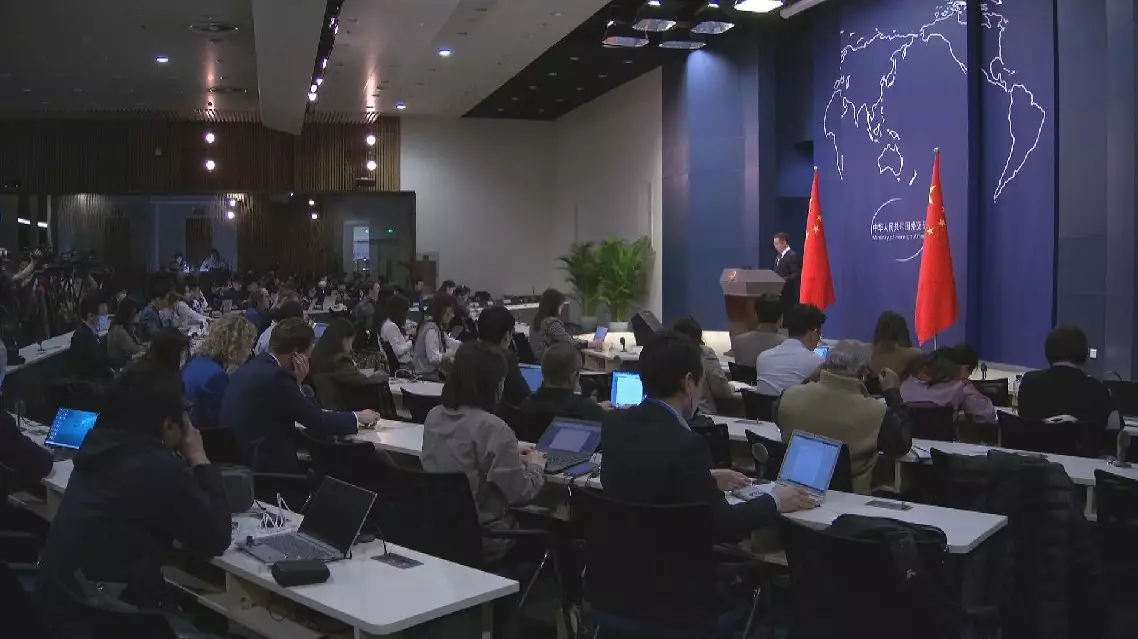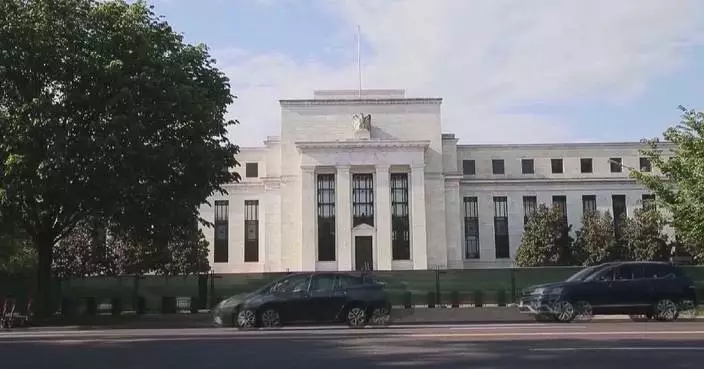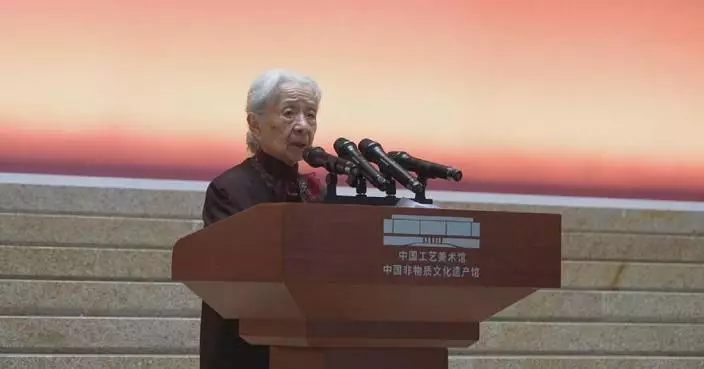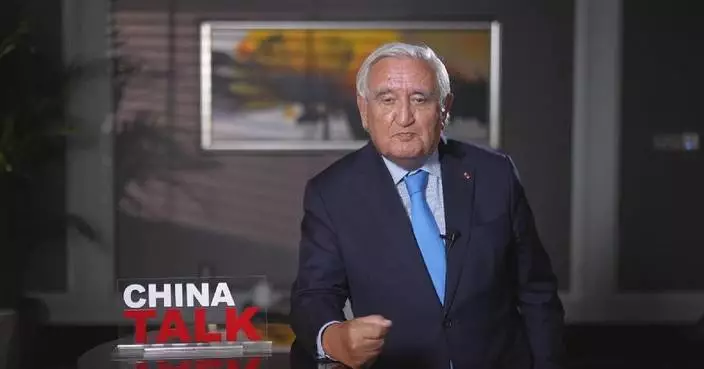The United States should take a hard look at its own track record in arms control, disarmament, and nonproliferation, instead of smearing other countries with baseless accusations, said a Chinese Foreign Ministry spokesman on Friday.
Lin Jian, the spokesman, made the statement at a regular press briefing in Beijing when responding to a query about the U.S. Department of State recently releasing its Report on Adherence to and Compliance with Arms Control, Nonproliferation, and Disarmament Agreements and Commitments, and accusing China of failing to adhere to its nuclear testing moratoria and conducting sensitive biological activities for military purposes.
"Year after year, the United States releases the so-called Report on Adherence to and Compliance with Arms Control, Nonproliferation, and Disarmament Agreements and Commitments. The report ignores facts and is full of preconceptions. On one hand, the report says nothing about the U.S. poor record on arms control, disarmament, and nonproliferation. On the other hand, the report smears other countries with baseless accusations on their compliance. China firmly opposes it," said Lin.
"On international arms control and nonproliferation, China is committed to true multilateralism and upholds the international system with the U.N. at its core and the international order based on international law. China has faithfully fulfilled its international obligations and commitments and contributed to upholding the international arms control and nonproliferation system with concrete actions," he said.
"In contrast, the U.S. continues to follow a Cold War mentality and keeps stoking major-country confrontation. The U.S. has little restraint in its military build-up and relentlessly seeks absolute advantage in the field of security. This has seriously jeopardized global and regional strategic stability. To sling mud at other countries in order to deflect attention and shirk responsibilities has become the U.S. go-to tactic. The international community is clear-eyed about this. We urge the U.S. to stop pointing fingers at other countries, take a hard look at its track record in arms control, disarmament, and nonproliferation, and earnestly respond to the legitimate concerns of the international community on the U.S. compliance," said the spokesman.

China firmly opposes U.S. accusations in arms control report: spokesman
The United States' advantage in international trade is based on the U.S. dollar dominance, which often victimizes emerging markets and developing economies (EMDEs), according to two Chinese experts.
The U.S. Federal Reserve (Fed) on Wednesday left interest rates unchanged at a 22-year high of 5.25 percent to 5.5 percent as recent consumer data indicates that inflation continued to tick up. The high interest rates' impacts have been especially detrimental to EMDEs, they said.
They pointed out that as the main currency for international transactions and reserves, the U.S. dollar should be a global public good in nature. Yet in reality, although it is in the position of playing a pivotal role in the global economy, the U.S. always upholds "U.S. first," with little regard of global public interest, said Wang Qing, chief macroeconomy analyst with Golden Credit Rating International. "We know that the U.S. dollar is controlled by the U.S. Federal Reserve, which mainly adjusts the dollar circulation in accordance with the United States' own economic operation, and it would not fully consider the reality of other economies. This paradox has in reality nurtured a series of major international economic and financial crises," Wang said.
He said the U.S. is practically in a position to purchase goods from other countries just by printing more dollars using the U.S. dollar dominance.
"We know that the U.S. has had a huge trade deficit for a long time, which means that its exports of goods and services have long been remarkably lower than its imports. This kind of macroeconomic imbalance is definitely not sustainable in other economies. But relying on the global currency status of the dollar, the U.S. could directly fill in this huge trade deficit by exporting dollars, which is practically imposing a dollar-printing tax on the world," Wang said.
While it capitalizes on the dollar's dominance, the U.S. is never hesitant to raise interest rates to draw the reflux of dollars once inflation occurs in its domestic economy, jolting other economies, said the experts.
"All emerging markets have depreciated by 1.5 percent on average against the U.S. dollar (this year). The currencies of South Korea and Brazil have depreciated by about six percent against the U.S. dollar, and in some countries it was more than that. (The currency of) Thailand has depreciated by about 7.5 percent. The blood-sucking effect of the U.S. dollar and its impacts on global depreciation are indeed very strong," said Lu Zhe, chief macroeconomist of Founder Securities Co. Ltd.

Chinese experts on US dollar hegemony










